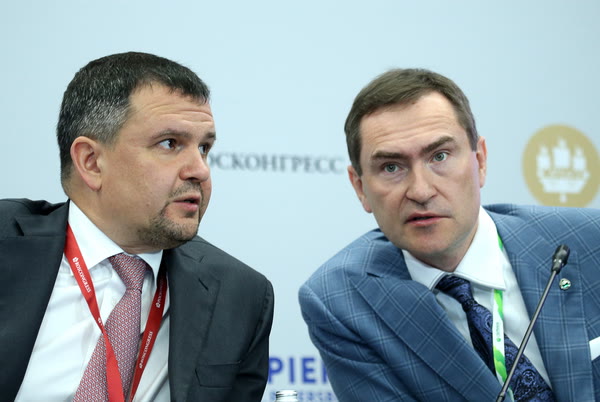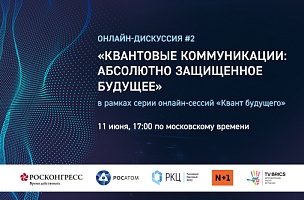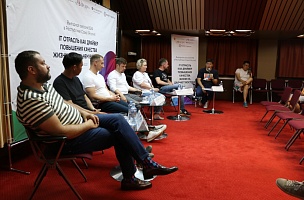KEY CONCLUSIONS
AI technologies have turned into a major tool for global development
“According to very careful estimates, during the period up to 2030, the contribution into annual GDP growth from using AI technologies might reach from 1.1% to 2% of annual increase. And this is a very balanced estimate for the Russian economy that corresponds to highly conservative global expert assessments,” Maxim Akimov, Deputy Prime Minister of the Russian Federation.
“Big data are the new oil; they are our oxygen,” Børge Brende, President, World Economic Forum.
“Artificial intelligence is a leverage for other industries that must give them a boost. And real implementation highly depends on how ready a particular industry is for this,” Dmitry Dyrmovsky, General Director, Member of the Board of Directors, Speech Technology Centre.
Use of state-of-the-art technologies is a crucial factor for competitiveness of national economies
“If you have access to technologies, you are a real country, otherwise – not so much. The choice is pretty straightforward <...> those who want to be a real country work on this strategy and develop a national strategy,” Maxim Akimov, Deputy Prime Minister of the Russian Federation.
Both Russian state and business are actively implementing AI technologies
“In 2017, there were only five countries in the world that invested considerable intellectual and managerial resources into development of national strategies. Now, there are more than thirty countries. And Russia has joined the list,” Maxim Akimov, Deputy Prime Minister of the Russian Federation.
“Our company now has a 50% growth in proceeds. <...> The whole company is built on artificial intelligence; we do not have anything else. 100% of our proceeds come from the AI technology,” Elena Bunina, General Director, Director of Organizational Development and HR Management, Yandex Russia.
“There are now over 2,000 models functioning at the bank that can be called AI and ML-based models, and this number is constantly growing,” Alexander Vedyakhin, First Deputy Chairman of the Executive Board, Sberbank.
AI technologies offer a considerable increase in productivity
“The ‘Cognitive Geologist’ programme will allow to shorten the exploration phase by two times. This means tens of billions of roubles. Using traditional approaches, it took us up to 18 months to create a model, now we will get models for our fields within 3–4 months,” Alexander Dyukov, Chairman of the Management Board, Chief Executive Officer, Gazprom Neft.
“The most difficult thing in crediting is crediting of major companies. At the best, it usually takes 2–3 weeks for a bank. We have launched an AI-based process that takes 7 minutes from client’s request to actual money, including legal analysis. <…> We do not have a single model that would increase productivity for less than 30%. <...> We have no alternatives, it must be implemented,” Alexander Vedyakhin, First Deputy Chairman of the Executive Board, Sberbank.
PROBLEMS
Lack of legal framework and standards for using AI and big data technologies
“Technologically, it is not difficult to collect the sufficient amount of data. The problem is how to learn to work with these amounts and exchange them. This is in many respects a legal issue and a problem of setting standards,” Vladislav Onishchenko, Head, Analytical Center for the Government of the Russian Federation.
“It is very important to choose an approach, what to regulate – the tool itself or a particular service. In the end, artificial intelligence is a toolkit, so that is what needs regulation or whatever is done with these tools. This is an ideological choice,” Arkady Dvorkovich, President, World Chess Federation (FIDE); Chairman, Skolkovo Foundation.
Energy capacity for AI application
“First of all, there is an energetic barrier, since data mining and processing require huge amounts of energy; and this energy should be right there, where it is needed for raw data processing,” Dmitry Peskov, Special Representative of the President of the Russian Federation on Digital and Technological Development; Director of the ‘Young Professionals’ direction, Agency for Strategic Initiatives (ASI).
Risk of negative impact of AI technologies on labour market
“I think we all saw results of opinion polls on expectations about AI technologies, and many people are cautious about them. <...> Many of them saw the figures implying that they can lose their jobs,” Kirill Tokarev, Editor-in-Chief, Anchor, RBC.
SOLUTIONS
Collaboration of business and state for development of AI technologies
“We intend to bring together the resources we have, under the supervision of the key players <...> industrial, those who implement mature solutions in industries and banking, those who work on development. <...> It is clear that these resources will be focused on working in six key spheres. They are mathematical methods and algorithms, software, working with data accessibility, legal framework, and regulation tools. And, of course, the key one is HR,” Maxim Akimov, Deputy Prime Minister of the Russian Federation.
“We plan to attract around 90 billion roubles from the federal budget within six years,” Maxim Akimov, Deputy Prime Minister of the Russian Federation.
“First comes the fundamental mathematical education, and then it should be topped with programming, data analysis and all other applications related to artificial intelligence. Companies should do that together with the state,” Elena Bunina, General Director, Director of Organizational Development and HR Management, Yandex Russia.
Creation of legal framework
“From the point of view of the state, we hardly can be pioneers in technology, that should be left for business. But creation of regulatory framework and opening and describing the data that the state possesses can provide a considerable impetus to the development of artificial intelligence in the country,” Vladislav Onishchenko, Head, Analytical Center for the Government of the Russian Federation.
Promotion of AI technologies
“As leaders in this field, we need to tell more about the advantages of artificial intelligence and what it can offer to the society,” Alexander Vedyakhin, First Deputy Chairman of the Executive Board, Sberbank.
Development of international cooperation
“We agree that cooperation must be international. On the one hand, these are shared technologies <...> they need to be used throughout the world. Of course, some data belong to a certain country, but some elements should be united based on the data that are in possession of one country <...> That is why cooperation between companies from all countries is crucial for maximum success,” Guo Ping, Deputy Chairman of the Board, Rotating Chief Executive Officer, Huawei.
Personnel training for working with AI technologies
“If, as a country, you do not ensure that government facilitates development of knowledge and research, you must create an environment where students and educational system in general do that, otherwise the country will not succeed,” Jaap Zuiderveld, Vice President of Sales and Marketing for Europe, Middle East, and India, NVIDIA.
“It would be great to implement the format, that is being quite actively used in many other countries, in Russia; it is the format of joint laboratories and centres with other companies. In Skoltech we already have a successful experience of cooperation with Gazprom Neft,” Maxim Fedorov, Professor, Director, Center for Computational and Data-Intensive Science and Engineering, The Skolkovo Institute of Science and Technology (Skoltech).
For more information, visit the Roscongress Foundation's Information and Analytical System at roscongress.org/en.






